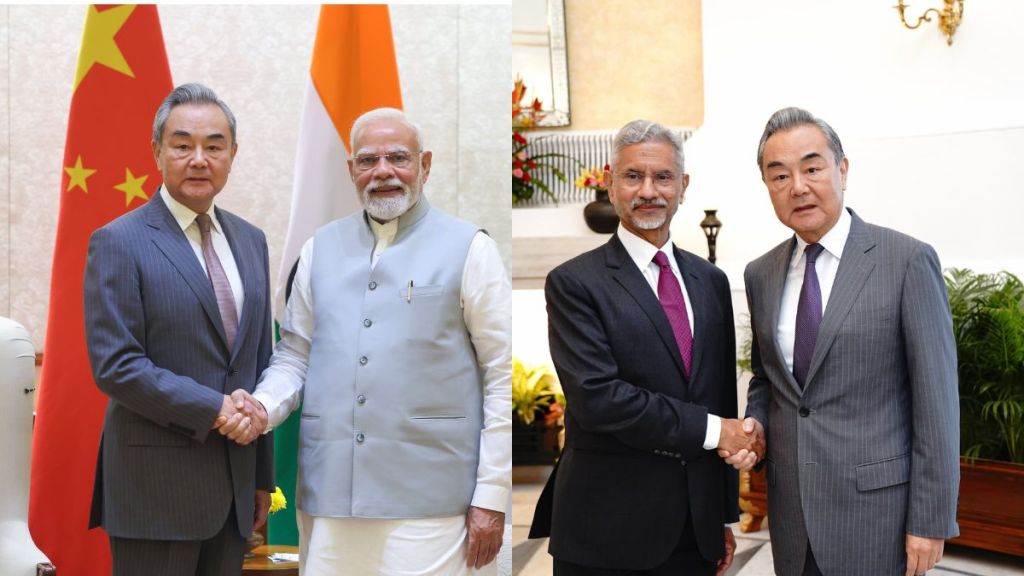China’s Minister of Foreign Affairs, Wang Yi, paid an official visit to India from August 18 to 19. Co-chairing the 24th Special Representatives’ dialogue with him was India’s National Security Advisor Ajit Doval, who facilitated the bilateral talks between India and China.
During his visit, Yi met with External Affairs Minister S. Jaishankar on August 18 and Prime Minister Narendra Modi yesterday, August 19. The talks reached a consensus to maintain peace as the leaders reiterated the overall development of India-China relations. This dialogue comes after PM Modi’s dialogue with Xi Jinping in Kazan last year to move towards the disengagement of troops along the LAC.
Doval, the designated representative for boundary talks, commended Wang’s “personal efforts” and “maturity and responsibility,” setting the tone right for the diplomatic relations. In response, Wang acknowledged that the setbacks between India and China were not in the interest of the people of our two countries.” Taking a unanimous front forward, China attached great importance to PM Modi’s visit to Tianjin for the SCO Summit in September.
From border security to direct flights: 8 Key Takeaways of India-China talks
- Prime Minister Modi firmly reiterated that peace and tranquillity along the India-China border are essential for any meaningful progress in their bilateral relations. He stressed that without stability at the borders, the broader ties between the two nations cannot develop healthily or sustainably.
- India also expressed its support for working together with China as PM Modi highlighted India’s willingness to engage positively in the upcoming SCO summit.
- PM Modi welcomed the progress in the India-China dialogue since his last meeting with Xi Jinping in Kazan. He emphasised that respect, shared interests, and sensitivity to each other’s concerns are necessary for building diplomatic relations.
- Regarding the long-standing boundary issue, the Indian Prime Minister reiterated the current positions. Further, he called for a fair, reasonable, and mutually acceptable resolution to resolve any issues between the nations. There was great stress levied on both sides to stay committed to dialogue and peaceful negotiations. This comes after India faced a strenuous time with dwindling global power dynamics after the Pahalgam Terror Attack. Reclaiming the narrative, India launched Operation Sindoor, a targeted military operation against terrorism in Pakistan.
- Wang Yi addressed the main reason for the long-standing conflict between India and China – boundary issues. He informed PM Modi about his talks with NSA Doval and how both parties agreed to keep communication channels open.
- The Chinese foreign minister also shared a positive view of his discussions with EAM Jaishankar on August 18. The EAM noted the need to enhance stability, given Trump’s imposed tariffs on allied countries. Jaishankar emphasises the need to border de-escalation as well.
- Prime Minister Modi also welcomed the revival of people-to-people exchanges, especially the resumption of the Kailash Manasarovar Yatra. He emphasized the cultural connections, including spiritual links, between the two nations, marking an important bridge between their ancient civilizations.
- In concluding the talks, PM Modi stressed that a stable, predictable, and constructive relationship between India and China would benefit both countries and significantly contribute to regional stability and global peace and prosperity.
- There was an agreement to resume direct flights and update the Air Space Agreement for easy facilitation of travel visas for promoting tourism and trade.
- Trade negotiations are set to be renewed through Lipulekh Pass, Shipki La Pass, and Nathu La Pass between the two nations.

